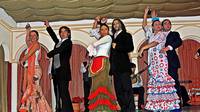
In the widest sense, education may be held to include the whole process of development through which a human being passes from infancy to maturity, gradually adapting himself to his physical and social environment; but the more definite sense in which the term is ordinarily employed is restricted to those influences which are designedly brought to bear upon the younger by the adult portion of the community for the purpose of maintaining and, if possible, of raising the level of culture attained. Education refers to that deliberately and consciously planned process of systematic instruction, schooling, or training in preparation for life or some particular task. To the moralist, education is preparation for the life hereafter.
Sociologists and anthropologists view education as the process, in school or beyond, of transmitting a society’s cultural knowledge, skills, values, and behaviors. Every society seeks to educate its young members to prepare them for adult roles.
Education may be viewed in different perspectives: formal, informal, and non-formal.
- Formal Education – This is instruction given in schools; hence, it is often called schooling. This is the “education system” with its hierarchical structures and chronological succession of grades, from primary to university. In the end, the learners may earn a diploma, a certificate, or degree as a mark of their success over the years.
- Informal education – This is the lifelong process of learning while people go about their daily lives. Each individual acquires knowledge, skills, attitudes and values through everyday experience; through the educational influences and resources of the geographical, social, and cultural environments; and through the influences of the mass communication media.
- Non-formal education – This comprises all those education activities that are organized outside the established formal system and designed for identifiable clientele and educational objectives such as those for out-of-school youths and illiterate adults.
Etymologically speaking, the term education has its roots from the Latin “E” or “Ex” which signifies “What is inside is brought out,” and “ducere” which means “to draw out,” “to bring forth,” “to lead,” “elicit,” “develop from the latent, rudimentary or potential condition.” Education therefore is the process by which one draws out what is within a person; it helps a person to externalize what is internal and present within him. Education assumes that a person is not a complete blank sheet or empty space, but rather, that he has potentialities and experiential meanings that can be brought out, used, and developed by means of the educational process.
A true and liberating education is one where the teacher is like a midwife as envisioned by Socrates. The midwife draws the human (the infant) from the human (the mother). A teacher should be like that. He should draw from inside that human person, what is already there within that person. Socrates called this the Maieutic Method. The teacher is not to have answers that others have to accept and repeat. But he asks questions that make his students think and see all sides of various contradictions and make them come to an understanding of a phenomenon in its entirety. The teacher and the learners are mutually engaged in the production of knowledge rather than in the consumption and reproduction of pre-digested knowledge.
From this viewpoint, teaching ceases to be a process of telling, giving, narrating, imposing, feeding or filling up the mind. The teacher is not a Lamplighter who illuminates the mind and is engaged in the lighting business; he is not a Gardener who cultivates young minds; he is not a Personal Manager who keeps his student’s minds busy to make them efficient and industrious; he is not a Muscle Builder who strengthens flabby minds; he is not a Potter who moulds the mind; he is not a Dietician who feeds the mind; he is not a Bucket Filler who fills up the empty mind like an empty receptacle; and he is not a Banker who deposits knowledge and withdraws knowledge from the filled-up mind.
Rather, the teacher in an inquiry and liberating learning environment views teaching as one of motivating, stimulating, guiding and coaching the learners “to learn how to learn.” He is engaged in asking convergent and divergent questions; encouraging student-student interaction; fostering contingent thinking, analytical and critical thinking; and spending more time listening to students than talking to or at them. His goal is to engage students in those activities which produce knowledge: defining, inquiring, investigating, observing, classifying, assimilating, discovering, formulating, judging, evaluating, analysing, generalizing, problem solving, creating, verifying, and applying. These are the activities that would develop among the learners the abilities and attitudes to deal adequately with CHANGE. Our educational system has long recognized the fact that the most striking characteristic of the world we live in in CHANGE – constant, accelerating and ubiquitous! It is not beyond our ingenuity to design school environments, which can help young people to master concepts necessary for survival in a rapidly changing world. What we need today is an education that develops in our youth a competence in applying the best available strategies for survival in a world filled with unprecendented troubles, uncertainties and opportunities.

















